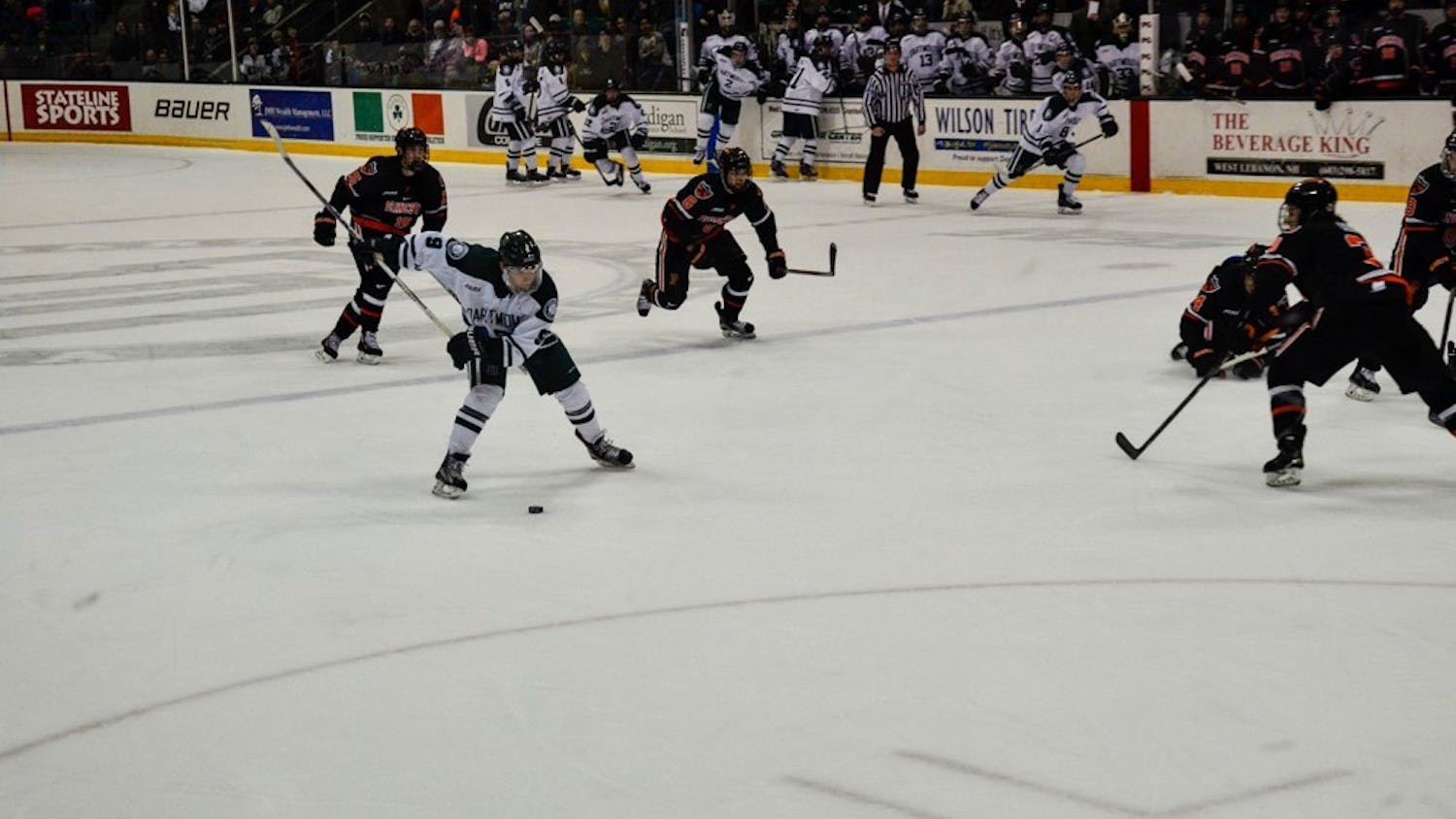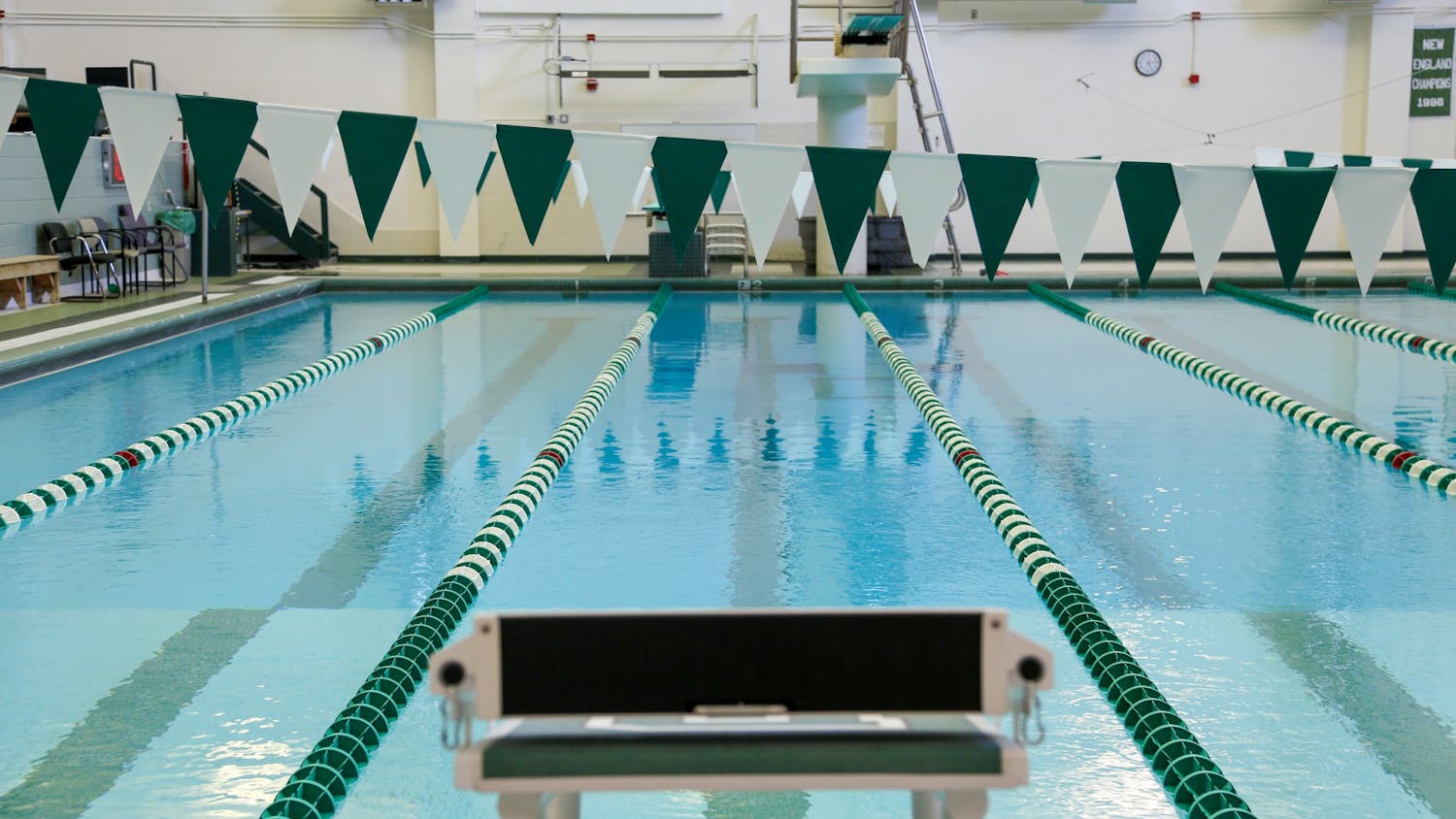In February, following the retirement of former athletics director Harry Sheehy, Peter Roby ’79 was appointed as Dartmouth’s interim athletics director. Roby assumed the role after months of controversy surrounding the elimination and eventual reinstatement of five varsity athletic teams. Roby was a varsity basketball player during his time at Dartmouth, and served as Northeastern University’s athletics director from 2007 to 2018. Roby sat down with The Dartmouth to discuss the recent return to competition, his transition into his new role and how he is working to rebuild trust within the athletics department.
How do you think the return to sports has gone so far, and what will the rest of the term look like in terms of competition?
It was such a welcomed return after 400-plus days since the last time anybody at Dartmouth competed in collegiate athletics. You can imagine how much excitement there was amongst the coaching staff, the support staff, administrative staff and most importantly, the students who had a chance to participate. It certainly doesn’t make up for almost two lost seasons for those spring-sport athletes, but just to be able to get back to doing something that they love to do, that is a welcome respite from all the COVID-related restrictions — just a welcomed return to some sort of normalcy for everybody. I’m excited for everybody who will have a chance to compete and looking forward to supporting them with a few more events before the spring term ends.
Thinking into the future, what are your current expectations for Ivy League competition in the fall? Do you think it will be more of a return to normal?
Everything that we are hearing from senior leadership of the College here at Dartmouth and also around the Ivy League suggests that we will get back to a fairly normal fall. Everybody’s situation is slightly different on their campuses and what their protocols will allow and what they will require, but you’d like to think, just given what we’re seeing in terms of the number of people getting vaccinated fully and the drop in positivity rates across the country, that it’s all trending in the right direction.
The fallout of the reinstatement of the five previously cut teams is one of the main concerns facing Dartmouth athletics right now. What was your reaction to that process?
As an alum, I was disappointed in how that all happened and the impact it had on the teams, student-athletes and coaches. You never want to see your alma mater go through those kinds of things, and I certainly empathized with everybody impacted. Now, as someone that is leading the athletics department, I’m excited because those folks are all back and re-established and back in the community, starting to participate in ways that they always wanted to participate. It’s exciting — it’s a real positive thing for Dartmouth and for the athletics department, and we’re going to make sure their experience is as positive as possible.
How is the College trying to rebuild trust with those teams that were cut? What have you and the athletic department been doing to remedy student-athletes’ concerns?
We’ve had conversations with all the teams that were reinstated. We tried to do that in the first few weeks that I was here to connect with them, have conversations with them, apologize for what they had to go through and make sure that they knew that I was committed to making their experiences as positive as possible. Answering questions, being available — a big part of trying to start to restore trust is just being present and being as transparent as you can be about things.
We’ve had conversations with those individual teams about, in some cases, the new head coach and what the timing was around that, how they might be involved in that and our commitment to trying to find the best candidates to lead the programs. We’re answering questions about admissions and the fallout from the impact of discontinuing certain teams and then bringing them back, maybe missing out on a class of student-athletes that would have come in the freshman class.
We met with some of their alumni groups because they were very involved in many cases in the reinstatements and making sure their voices were heard and in some cases even parent organizations that were very involved. The most important thing was to deliver the message that no matter what I say or others in the athletics department say, we want them to judge whether they should trust us or not based on what we do, not what we say.
How do you intend to convince some of those potential recruits to choose a program that just cut those teams?
Yeah, that’s a fundamental question, right? But just like the way that we did it with the coaching, we found coaches who were willing to commit their future careers to Dartmouth. I think it speaks to the reputation of the College, and what it means to coach at Dartmouth, and to coach in the Ivy League, and I think the same is true of student-athletes — that this place has real appeal. It has a great history and legacy.
You just got to be transparent, you got to be honest. And what I’ve been saying to the coaches, and would say to recruits is, we get up every morning wanting to do everything we can to put those teams in a position where nobody’s ever going to think about discontinuing them again. The best way to do that is to work every day to support them and lead them in a direction that will result in success, not only in the pool or on the river or on the course, but in terms of who those people are and how they develop once they’re here and the kind of quality education they get, and all the other ways that we can support them.
You took over as athletics director during some difficult circumstances — how has the transition been, and how have you been changing the athletic department and athletics at Dartmouth?
It's certainly been busy over the last two and a half months. If there was any benefit to coming when I did, it's just, we're able to get connected with the different stakeholder groups, including donors, alumni, our colleagues across campus and the deans’ offices, and the deans of other professional and graduate schools, and my colleagues within the Ivy League, my athletics director peers and the Ivy League folks.
The reason I say it was good timing was because we didn't have a full-blown athletics program going on because of COVID, so I could focus my attention in the other areas and try to shore up communication, starting to rebuild the culture and the trust and get people excited. Again, bring some energy as someone from the outside and hopefully bring some credibility, just from the standpoint of me being a Dartmouth College graduate and a former student-athlete. I have that shared experience with everybody that's here. If you say you care about the student-athlete experience and want them to have the best experience they can, but you don't build trust and don’t make the coaches feel valued, then that's going to trickle down to the student-athletes, and they're going to start to feel the same way.
When President Hanlon reached out to me and asked me if I would consider coming back in the interim role, I didn't hesitate. One, because it's my alma mater, and it means so much to me, that I wanted to be helpful. But the second was because I thought I had the skills and the experience to bring about some change in a positive way. That's what I get up every morning trying to do.
Do you know if you're being considered for the full-time athletics director spot? Is that something that you'd be interested in continuing in the long term?
I’ve got that question a lot and my answer is: I can't say yet what the future will hold. Life circumstances take different turns and the College may also have thoughts about what kinds of things they want to do in terms of leadership going forward.
All I can tell you is that I will be in constant contact with President Hanlon about where we are, how we're doing, how he feels about what we're doing, and my sense is that I want to commit myself to doing all that I can between now and June of 2022. And let's take stock of that — part of what I agreed to do was make recommendations to the board and to the President about the vision for the future of Dartmouth athletics. That's what I'm committed to doing while I lead the program right now, and then we'll see where that all goes as we get closer to June of 2022.
This interview has been edited and condensed for clarity and length.




